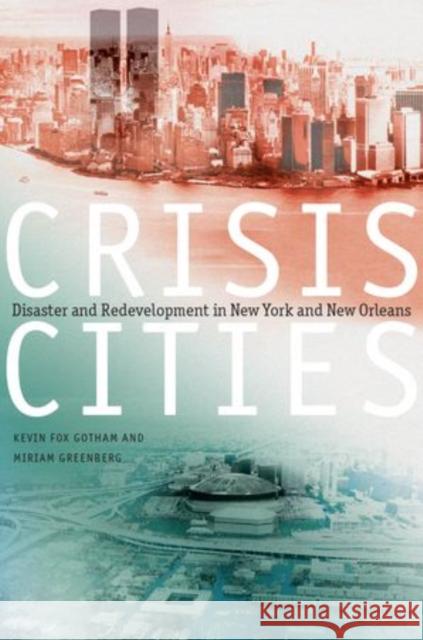Crisis Cities » książka
Crisis Cities
ISBN-13: 9780199752225 / Angielski / Twarda / 2014
Crisis Cities blends critical theoretical insight with a historically-grounded comparative study to examine the redevelopment efforts following the 9/11 and Hurricane Katrina disasters. Based on years of research in the two cities, Gotham and Greenberg contend that New York and New Orleans have emerged as paradigmatic crisis cities, representing a free-market approach to post-disaster redevelopment that is increasingly dominant for crisis-stricken cities around the world. This mode of urbanization emphasizes the privatization of disaster aid, devolution of recovery responsibility to the local state, use of tax incentives and federal grants to spur market-centered redevelopment, and utopian branding campaigns to market the redeveloped city for business and tourism. Meanwhile, it eliminates "low-income" and "public benefit" standards that once underlay emergency provisions. Focusing on the pre- and post-history of disaster, Gotham and Greenberg show how this approach exacerbates the uneven landscapes of risk and resiliency that helped produce crisis in the first place, while potentially reproducing the conditions for future crisis. At the same time, they highlight the expanding coalitions that formed following 9/11 and Katrina to contest these inequities and envision a more just and sustainable urban future.











